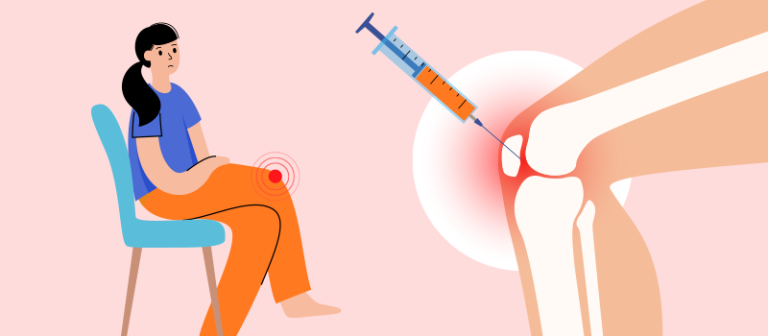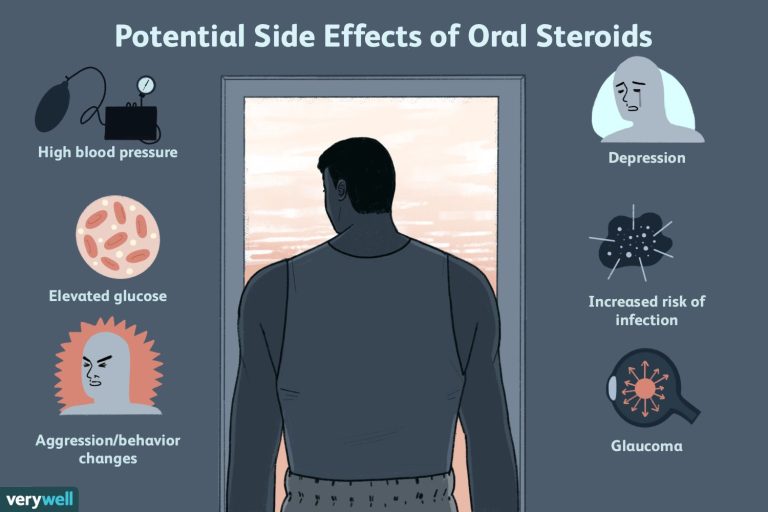How Long Do Oral Steroids Stay In Your System
Introduction: Oral steroids are commonly prescribed by doctors to treat various medical conditions such as asthma, arthritis, and autoimmune diseases….
Introduction:
Oral steroids are commonly prescribed by doctors to treat various medical conditions such as asthma, arthritis, and autoimmune diseases. However, many people are curious about how long these medications stay in their system, particularly if they are concerned about potential side effects or if they have a drug test coming up. In this article, we will explore the factors that affect the duration of oral steroids in the body and provide you with some helpful insights.
Paragraph 1:
The length of time that oral steroids stay in your system depends on several factors, including the type of steroid, the dosage, and the individual’s metabolism. Some steroids are short-acting and can be eliminated from the body within a few hours, while others may take several days to leave the system. It is important to note that even after the steroid has been metabolized and eliminated, its effects may still be present in the body for several weeks or months.
Paragraph 2:
If you are concerned about the duration of oral steroids in your system, it is important to talk to your doctor or pharmacist. They can provide you with information about the specific steroid you are taking and how long it is likely to remain in your body. Additionally, if you are scheduled for a drug test, you should inform the testing facility of any medications you are taking to avoid any false positives or other complications. By understanding how long oral steroids stay in your system, you can make informed decisions about your health and well-being.
How Long Do Oral Steroids Stay in Your System?
If you’ve been prescribed oral steroids for a medical condition, you may be wondering how long they will remain in your system. The answer is that it depends on a variety of factors, including the specific steroid you’re taking and your individual metabolism. In general, oral steroids can remain detectable in your system for several weeks after your last dose.
Factors That Affect the Duration of Oral Steroids in Your System
There are several factors that can influence how long oral steroids stay in your system. These include:
Dosage
The higher the dose of steroids you take, the longer they may remain in your system.
Half-Life of the Steroid
The half-life of a steroid is the amount of time it takes for half of the drug to be eliminated from your system. Steroids with longer half-lives will take longer to be eliminated.
Individual Metabolism
Everyone’s metabolism is different, so the rate at which your body processes and eliminates steroids may vary.
Type of Steroid
Different types of steroids are metabolized and eliminated at different rates. For example, some steroids are more easily broken down by the liver than others.
How Long Do Common Oral Steroids Stay in Your System?
Here are some estimates for how long common oral steroids may remain detectable in your system:
Prednisone
Prednisone has a half-life of approximately 2-4 hours and can remain detectable in your system for up to 16-24 hours.
Dexamethasone
Dexamethasone has a half-life of approximately 36-54 hours and can remain detectable in your system for up to 4-5 days.
Methylprednisolone
Methylprednisolone has a half-life of approximately 18-26 hours and can remain detectable in your system for up to 2-3 days.
Prednisolone
Prednisolone has a half-life of approximately 2-4 hours and can remain detectable in your system for up to 16-24 hours.
Benefits of Oral Steroids
Oral steroids can be an effective treatment for a variety of medical conditions, including:
Inflammation
Oral steroids can help reduce inflammation in the body, which can be beneficial for conditions such as arthritis, allergies, and asthma.
Autoimmune Disorders
Oral steroids can help suppress the immune system, which can be beneficial for conditions such as lupus and multiple sclerosis.
Cancer
Oral steroids can help reduce inflammation and swelling caused by cancer and cancer treatments.
Side Effects of Oral Steroids
While oral steroids can be effective, they can also cause a variety of side effects, including:
Weight Gain
Oral steroids can cause fluid retention and weight gain.
Mood Changes
Oral steroids can cause mood changes, including irritability, anxiety, and depression.
Increased Risk of Infection
Oral steroids can suppress the immune system, which can increase the risk of infection.
High Blood Pressure
Oral steroids can increase blood pressure, which can be dangerous for individuals with pre-existing hypertension.
Conclusion
In summary, the duration of oral steroids in your system can vary depending on several factors, including the specific steroid you’re taking and your individual metabolism. While oral steroids can be an effective treatment for certain medical conditions, they can also cause a variety of side effects. It’s important to discuss the risks and benefits of taking oral steroids with your healthcare provider before starting treatment.
Frequently Asked Questions
Here are some common questions related to the topic of oral steroids and their duration in the body:
What are oral steroids and how do they work?
Oral steroids, also known as corticosteroids, are synthetic versions of the hormone cortisol, which is naturally produced in the body by the adrenal glands. They are usually prescribed to reduce inflammation and swelling in various parts of the body, and to suppress the immune system in certain conditions such as asthma, allergies, and autoimmune diseases.
Oral steroids work by binding to specific receptors in cells and tissues, which helps to regulate the production of certain proteins and enzymes involved in inflammation and immune response. They can have a range of effects on the body, including reducing pain, redness, and swelling, but also increasing the risk of side effects such as weight gain, mood changes, and weakened bones.
How long do oral steroids stay in your system?
The duration of oral steroids in the body can vary depending on several factors, such as the type of steroid, the dose and frequency of use, and the individual’s metabolism and overall health. In general, oral steroids have a half-life of several hours to a few days, which means that half of the drug is eliminated from the body during that time.
However, some steroid metabolites can remain detectable in urine and blood tests for several weeks or even months after the last dose, especially with long-term use or high doses. It is important to follow the prescribed dosage and duration of oral steroids, and to consult a healthcare provider for any concerns about their effects or withdrawal.
What are some factors that can affect the duration of oral steroids in the body?
Several factors can influence how long oral steroids stay in the body, including:
- The type of steroid: Different oral steroids have different chemical structures and half-lives, which can affect their absorption, metabolism, and elimination from the body.
- The dose and frequency of use: Higher doses or more frequent use of oral steroids can result in longer duration of action and accumulation in the body.
- The individual’s metabolism and health status: Factors such as age, gender, weight, liver and kidney function, and other medications or supplements can affect how the body processes and eliminates oral steroids.
- The presence of other medical conditions: Certain conditions such as diabetes, hypothyroidism, or HIV can also affect the metabolism and clearance of oral steroids from the body.
What are some possible side effects of long-term use of oral steroids?
Long-term use of oral steroids can increase the risk of several side effects, including:
- Weight gain and obesity
- High blood pressure and fluid retention
- Diabetes and high blood sugar
- Weakened bones and increased risk of fractures
- Cataracts and glaucoma
- Infections and impaired immune function
- Mood changes and psychiatric disorders
- Acne, hirsutism, and other skin changes
These side effects can vary depending on the type and dose of oral steroid, as well as individual factors such as age, sex, and overall health. It is important to discuss any concerns or symptoms with a healthcare provider, and to follow a safe and appropriate treatment plan.
What are some alternatives to oral steroids for treating inflammation and immune disorders?
While oral steroids can be effective for reducing inflammation and suppressing the immune system, they are not always the best option for long-term or chronic use. Some alternatives to oral steroids for treating inflammation and immune disorders include:
- Nonsteroidal anti-inflammatory drugs (NSAIDs), such as ibuprofen or naproxen
- Disease-modifying antirheumatic drugs (DMARDs), such as methotrexate or sulfasalazine
- Biologic agents, such as tumor necrosis factor (TNF) inhibitors or interleukin (IL) blockers
- Topical creams or ointments, such as corticosteroid creams or immunomodulators
- Lifestyle changes, such as diet, exercise, stress management, and avoiding triggers
These alternatives can have different mechanisms of action, side effects, and risks, and should be discussed with a healthcare provider to determine the best treatment plan for each individual.
How long do steroids stay in your system?
In conclusion, the length of time that oral steroids stay in your system can vary greatly depending on several factors. Generally, the half-life of oral steroids ranges from a few hours to several days. However, other factors such as the type of steroid, dosage, frequency of use, and individual metabolism can affect how long the steroid stays in your system.
It is essential to understand the potential risks and side effects associated with the use of oral steroids. Prolonged use or abuse of oral steroids can lead to serious health problems such as liver damage, heart disease, and hormonal imbalances. Therefore, it is crucial to only use oral steroids under the guidance and supervision of a medical professional.
In conclusion, while oral steroids can be an effective treatment for certain medical conditions, it is essential to use them responsibly and be aware of the potential risks and side effects. Understanding how long the steroid stays in your system can help you make informed decisions about your health and wellbeing.







